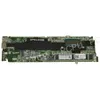Google search results feel worse lately? Here’s why — and what you can do about it
Tips to spot it, avoid it and find real, human-written content instead

Here at Tom’s Guide our expert editors are committed to bringing you the best news, reviews and guides to help you stay informed and ahead of the curve!
You are now subscribed
Your newsletter sign-up was successful
Want to add more newsletters?

Daily (Mon-Sun)
Tom's Guide Daily
Sign up to get the latest updates on all of your favorite content! From cutting-edge tech news and the hottest streaming buzz to unbeatable deals on the best products and in-depth reviews, we’ve got you covered.

Weekly on Thursday
Tom's AI Guide
Be AI savvy with your weekly newsletter summing up all the biggest AI news you need to know. Plus, analysis from our AI editor and tips on how to use the latest AI tools!

Weekly on Friday
Tom's iGuide
Unlock the vast world of Apple news straight to your inbox. With coverage on everything from exciting product launches to essential software updates, this is your go-to source for the latest updates on all the best Apple content.

Weekly on Monday
Tom's Streaming Guide
Our weekly newsletter is expertly crafted to immerse you in the world of streaming. Stay updated on the latest releases and our top recommendations across your favorite streaming platforms.
Join the club
Get full access to premium articles, exclusive features and a growing list of member rewards.
If you’ve noticed your Google searches getting worse lately, you’re not imagining things.
Whether you're looking for the best travel gear, a banana bread recipe or how to fix your Wi-Fi, you’re likely wading through a sea of vague, repetitive, AI-generated content.
Welcome to the era of AI slop that’s quietly polluting the internet.
What is AI slop?

AI slop refers to low-quality, mass-produced content generated by artificial intelligence. Unlike Claude’s AI-generated blog, AI slop is often published with minimal or no human editing.
These posts are typically filled with robotic phrasing, recycled phrasing and surface-level information that clog actual search results you need.
You may be seeing AI slop without even realizing it, but you can recognize the blog articles that feel oddly stiff, reviews that don’t offer any real insights or listicles that read like they were written by a machine (because they were).
In many cases, these posts cite ChatGPT or other AI models as sources, or worse, they cite each other in a loop of low-value content.
Because they’re optimized to game search algorithms, AI slop floods the top of search results. And it’s spreading fast.
Get instant access to breaking news, the hottest reviews, great deals and helpful tips.
Why it’s getting worse

There are a few reasons AI slop is taking over your search results. First, it’s profitable. Even if only a small percentage of people click on these articles or purchase something from affiliate links, the sheer volume makes the strategy worth it for publishers.
Second, it scales infinitely. One person using AI tools can generate hundreds of articles in a single day; no editorial team required.
Finally, search engines can’t keep up. Platforms like Google are constantly adjusting their algorithms to detect low-quality content, but AI is evolving faster.
As models like ChatGPT, Claude and Gemini become more capable, the line between passable and polished gets blurrier, and the slop gets harder to detect.
The impact on users
This surge in AI-generated content is actively undermining how we make decisions, solve problems and learn online.
Trust is eroding as search results increasingly feel generic or suspicious. Even basic questions now return shallow answers that leave users more confused than informed.
Human creators are also paying the price. Valuable, original content from real writers often gets buried beneath a flood of AI-generated filler.
And for users, the cost is time: having to click through five or six unhelpful pages just to find one good answer is frustrating, and frankly exhausting.
How to clean up your own search results

Until search engines catch up, there are simple tricks you can use to find better, more human-written information.
One of the most effective methods is to use search operators, which are special phrases you can add to your Google search to narrow the results.
For example, if you’re looking for genuine product reviews or personal experiences, you can add:
site:reddit.com to your search. This tells Google to only show results from Reddit, where real people are sharing firsthand opinions.
Let’s say you want recommendations for running shoes. Instead of typing:
best running shoes
Try:
best running shoes site:tomsguide.com
You can do the same with other trusted sites, too, like Reddit. This will give you Reddit threads and comments, real conversations, not generic blog posts written by an AI or SEO team.
These small tweaks help you bypass the “AI slop” and surface content that’s more likely to be helpful, opinionated, and written by actual humans.
It also helps to filter results by date. Since many AI content farms push out evergreen content with no timestamps, limiting your search to the “Past Month” or “Past Year” can surface more relevant, fresher content.
You can also try alternative search engines like DuckDuckGo, or Perplexity.ai, which often emphasize transparency and quality over quantity.
Bottom line
What once felt like a place for useful information, is starting to feel more like a junk drawer. If we want to fix the problem at scale, platforms need to act. That starts with penalizing low-effort, AI-generated content and rewarding original reporting and expert insight.
AI-generated articles should be clearly labeled, and search engines should elevate content created by verified humans, especially when it comes to advice, reviews and news.
As it stands, platforms are still playing catch-up. But if they want users to keep trusting them, they need to stop rewarding volume and start rewarding value.
Use site-specific queries, filter by date and stick to trusted sources. Ironically, some of the best AI tools like ChatGPT or Claude may actually be more helpful than what search engines serve up. These chatbots can summarize research, answer specific questions, or help you cut through noise. Just be sure to verify anything they generate; AI slop can happen inside a chatbot, too.
The cleanest, most helpful information is still out there, you just have to be more intentional about how you search.
More from Tom's Guide
- GPT-5 will be here any minute — here's what we're hoping to see
- 5 hidden ChatGPT tricks most people don’t use — but they’re actually game changers
- This ChatGPT prompt changed how I work — and I use it every Monday morning

Amanda Caswell is an award-winning journalist, bestselling YA author, and one of today’s leading voices in AI and technology. A celebrated contributor to various news outlets, her sharp insights and relatable storytelling have earned her a loyal readership. Amanda’s work has been recognized with prestigious honors, including outstanding contribution to media.
Known for her ability to bring clarity to even the most complex topics, Amanda seamlessly blends innovation and creativity, inspiring readers to embrace the power of AI and emerging technologies. As a certified prompt engineer, she continues to push the boundaries of how humans and AI can work together.
Beyond her journalism career, Amanda is a long-distance runner and mom of three. She lives in New Jersey.
You must confirm your public display name before commenting
Please logout and then login again, you will then be prompted to enter your display name.
 Club Benefits
Club Benefits




















